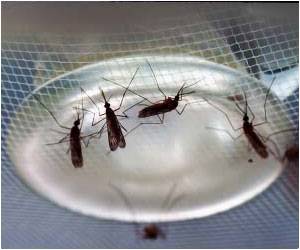New vaccine against malaria shows promising results, reveals study.

"However, as malaria attacks were documented as part of the safety follow-up, the investigators decided to explore the protective effect of the vaccine," said report appearing in Thursday's New England Journal of Medicine.
"Results indicate a high level of efficacy."
In the study, 45 children aged 12-24 months were randomized into three groups receiving doses of either 15 or 30 micrograms of the experimental malaria vaccine, or the control vaccine against Hepatitis B.
"Comparing the groups, they found a striking difference," the study said.
It found children who received the new vaccine at either dose had incidence rates three to four times lower than children who did not, "yielding efficacy rates of 64 and 77 percent protection against clinical malaria," the journal article said.
Advertisement
"Larger efficacy trials in diverse epidemiological settings will be required to confirm these results."
Advertisement
The researchers found those receiving the vaccine at either dose had more antibodies protecting against malaria.
"Despite the limitations of the design and small sample size, these results strongly suggest a significant protective effect over the follow-up period," the study said.
Malaria claimed 781,000 lives in 2009, according to the UN's World Health Organization (WHO). About 90 percent of malaria deaths each year occur in Africa and 92 percent of those are children aged under five.
Scientists say fighting the disease is complicated because the parasite, Plasmodium falciparum, is several hundred times larger than viruses like measles or polio, but is also as variable as viruses like influenza and HIV.
"In addition to demonstrating safety, the vaccine induced the desired type of immune responses in all vaccinated children: those associated with natural protection observed in adults," the study concluded.
"This provides hope that the above approach may provide an artificial way to shortcut the 10-20 years of malaria exposure needed to acquire that highly desirable immune state seen in adults."
The only malaria vaccine in advanced clinical trials is the RTS,S vaccine being developed by British drugmaker GlaxoSmithKline, which could become available in 2015. A 2008 study showed the RTS,S vaccine with an efficacy of 53 percent for young children and 65 percent for infants.
Source-AFP











